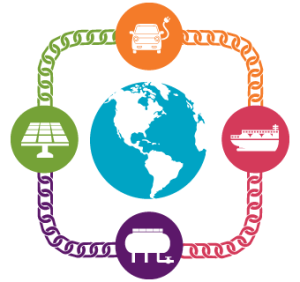K&L Gates Blockchain Energizer – Volume 25
By Buck Endemann, Ben Tejblum, and Daniel Cohen
 There is a lot of buzz around blockchain technology and its potential to revolutionize a wide range of industries from finance and health care to real estate and supply chain management. Reports estimate that over $4.5 billion was invested in blockchain startups in 2017 alone, and many institutions and companies are forming partnerships to explore how blockchain ledgers and smart contracts can be deployed to manage and share data, create transactional efficiencies, and reduce costs.
There is a lot of buzz around blockchain technology and its potential to revolutionize a wide range of industries from finance and health care to real estate and supply chain management. Reports estimate that over $4.5 billion was invested in blockchain startups in 2017 alone, and many institutions and companies are forming partnerships to explore how blockchain ledgers and smart contracts can be deployed to manage and share data, create transactional efficiencies, and reduce costs.
While virtual currencies and blockchain technology in the financial services industry have been the subject of significant debate and discussion, blockchain applications that could transform the energy industry have received comparatively less attention. Every other week, the K&L Gates’ Blockchain Energizer will highlight emerging issues or stories relating to the use of blockchain technology in the energy space. To subscribe to the Blockchain Energizer newsletter, please click here.
IN THIS ISSUE
- Cryptocurrency miners face mounting resistance to energy demands in the United States and Canada
- LO3 Energy will launch a blockchain-based renewable energy trading platform in Southern Australia
- International Energy Research Centre plans to develop a peer-to-peer energy trading platform
- Elia, Belgium’s transmission system operator, to explore blockchain
To view more information on theses topics in Volume 25 of the Blockchain Energizer, click here.
